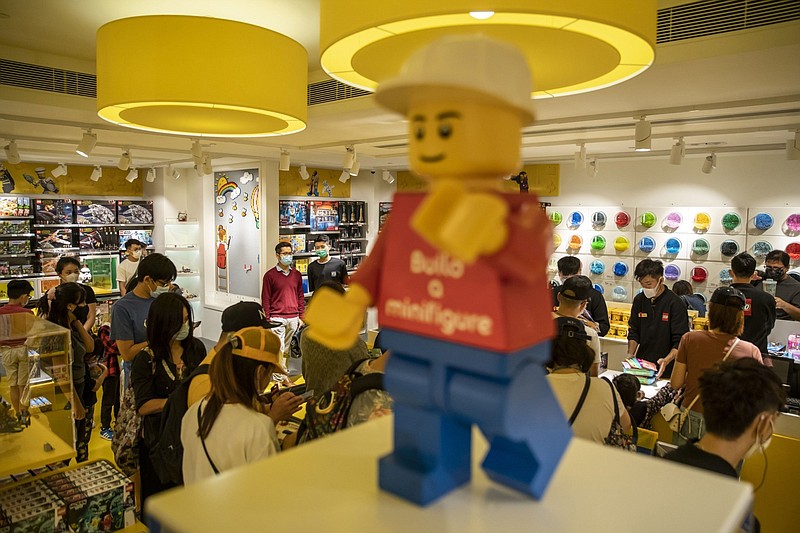One of China's largest toy retailers and distributors is betting on a new market as it looks toward the post-covid-19 landscape: grown-ups.
The company, Kidsland International Holdings Ltd., is hoping to ride demand in Asia for so-called pop toys -- collectible cartoon figurines geared toward adults -- as it, along with other Chinese consumer firms, charts a recovery out of the pandemic.
Kidsland, which distributes products from Denmark's Lego A/S in Greater China, opened its first permanent collectible toy store kkplus in Hong Kong in July, selling products like "Garfield" and "Tom and Jerry" figurines. The Hong Kong-based company plans to introduce kkplus to the mainland in 2022, assistant chief executive officer and chief financial officer Sherman Hung told Bloomberg News in an interview.
"We've already been talking with different partners in mainland China, with Beijing, Shanghai, Guangzhou and Shenzhen being our primary targets," said Hung. "We believe in three to five years, the 'kidult' market will be as big as the traditional toy market, making it appealing for us to address."
The move to expand beyond children's toys comes as Kidsland looks to recover from a revenue drop of 20% in 2020, after the pandemic disrupted sales channels and dampened consumer sentiment across China. The company says it is the largest retailer and distributor of toys in China by retail sales.
While life in China is largely back to normal after covid's initial spread, flareups of cases have kept consumers on edge, and sectors from restaurants to supermarkets still face weakness as people stay away from social gatherings and visits to physical stores. Kidsland's brick-and-mortar retail network encompasses some 670 self-operated shops and counters, and another 3,000 distribution points.
Sales of toys geared toward social interaction or those that impulse buyers tend to purchase have suffered during the pandemic, Hung said, while those conducive to time at home -- including board games and puzzles -- have remained popular.
"It's really an uneven recovery," he said.
Kidsland also distributes products from brands including U.S.-based Little Tikes and toy train and track maker Brio AB.
China's toy market -- on track to become the biggest in the world by 2022, passing the U.S.'s $25 billion industry, according to Bloomberg Intelligence -- is seeing more competition in the pop toy arena.
Budget household and consumer goods retailer Miniso Group Holding Ltd. made its foray into selling toys, including collectible cartoon figurines, in late 2020. Pop Mart International Group Ltd., a local upstart that garnered $643 million in its Hong Kong initial public offering last December, is known for selling its dolls in "blind boxes" where people don't know what they get until after the purchase, adding the element of chance to the fun.
The Chinese market for designer toy collectibles is currently valued at $6 billion and will grow by 50% to $9 billion by 2023, according to analysis firm iiMedia Research.
The kkplus store speaks to a more mature adult market rather than shoppers in their teens or early twenties, Hung said, starting with their price tags: One bronze Mickey Mouse figurine sells for $3,860.
"Over time mainland China will be our main playground," he said. "We decided we wanted to start in Hong Kong to test and establish a platform and network with partners, programs and artists to develop this market."
